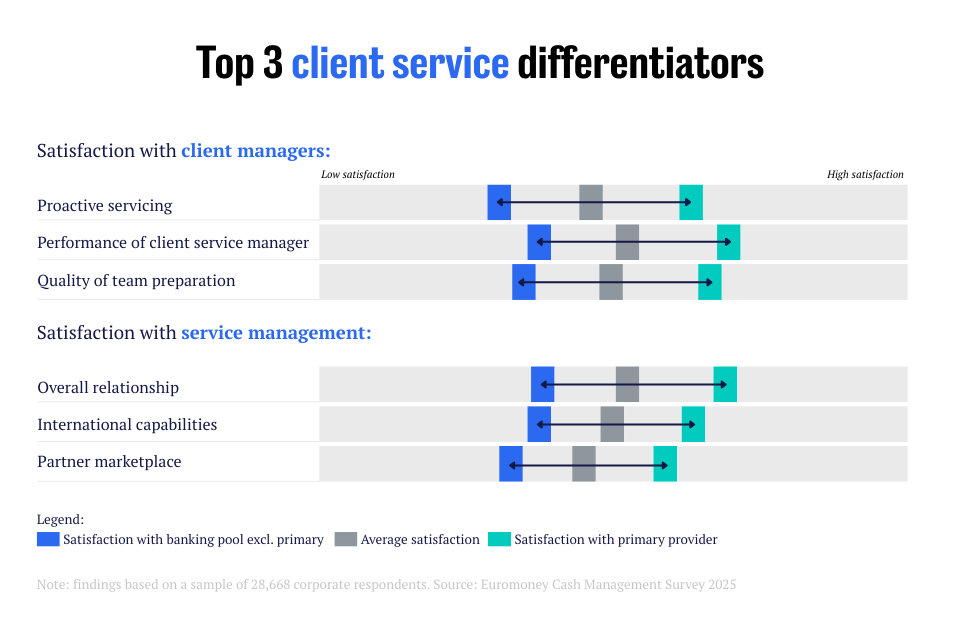
Mark Johnson, the HSBC FX trader found guilty of wire fraud last October and sentenced to two years in jail this April, is appealing his conviction.
You should care about the outcome.
I was intimately involved in the original case as the defence expert, and even though I am no lawyer, it is obvious even to me that the legal issues involved in the appeal will have serious and far-reaching consequences.
One example: if you rely on Isda agreements, the Mark Johnson appeal will decide on whether or not they can be unintentionally undermined to the point that they are worthless.
But most crucially, if you believe that it should be obvious in advance what offences may land you in prison (rather them having them defined arbitrarily by prosecutors in retrospect) Mark Johnson’s appeal will be of direct consequence to you and your firm.
The deal
First, some background if you don’t know the details already.
In December 2011, a multi-billion pound, FTSE250, British oil company called Cairn Energy had just sold its Indian subsidiary – for which it received US dollars – and wanted to return a part of the proceeds to its shareholders in sterling. Thus, on December 7, 2011, Cairn gave HSBC an order to buy £2.25 billion and sell US dollars – an order to buy ‘cable’ as the currency pair is called in the jargon-rich world of FX. It was an enormous sum, even in the liquid FX markets.
The order had been a long time coming. The first meetings with Cairn about the potential deal had been in October 2011. Since then, they and their advisers, the investment bank Rothschild, had received pitches from nine different banks and, via a process of shortlisting and interview, had finally chosen HSBC.
But how should Cairn do the deal? There were three main approaches that HSBC (and, indeed, the other banks) had suggested.
First, an ‘at best’ order, whereby HSBC would simply act as Cairn’s agent, buy the sterling on its behalf, hand the sum over to Cairn and charge a flat fee for the effort.
Second, ‘full risk transfer’. Here Cairn would call up HSBC at the moment that they wanted to deal. At this point, the prevailing price in the market would be observed and the deal would be done in one lump at that observed rate plus slippage. HSBC’s price for the slippage was 100 pips – slap bang in the range that all the other banks in the panel had quoted.
It is exceptionally dangerous for a legal verdict to stand that is based, in part, on a supposition that such a fundamental document as an Isda agreement could be overridden by some loosely chosen words in a pitch book
Last, a fixing trade: Cairn would notify HSBC some time in advance of a fix and HSBC would transact the £2.25 billion purchase at the independently calculated fixing rate after it had been published. HSBC asked for two hours prior notice; every other bank that proposed a fix suggested something similar. Importantly, a fix trade involves no fees or bid-offer spread being charged.
Cairn, advised by Rothschild, eventually chose the fixing route. Why? Because it provided the company the most transparency when dealing with its shareholders (“Look! We transacted at the fix”) and because Cairn and Rothschild supposed that the fixing rate would come in cheaper than the full risk transfer price, which, as it happens, it did.
The bald facts of what occurred next are not under dispute – virtually every aspect of the deal was recorded electronically in minute detail during the day.
On December 7, 2011, at 1:51pm, Cairn instructed HSBC to exchange approximately $1.2 billion for sterling at the 3pm fix rate; at 2:25pm, 35 minutes before the fix rate was set, Cairn placed a second order, which replaced the first and directed HSBC to purchase £2.25 billion
HSBC used around a dozen traders to buy the pounds, split between New York and London offices. The main cable bookrunner completed the bulk of the order (around 87%); his colleagues bought the balance, thus reducing the quantity the main bookrunner needed to buy. As soon as the fixing rate had been published, those traders turned over their positions to be used against the client order.
Between them, the HSBC traders started buying slowly when the first order came in and then gradually accelerated the pace into the fixing window in which the main book runner bought the last £800 million. When they started buying, cable was trading around $1.5630/£1 (thus, the ‘full risk transfer’ price would have been $1.5730 had this been Cairn’s choice of fill method). The fix was at $1.57185 and Cairn was filled at a slight discount at $1.5716. HSBC made about $7 million on the trade (that is, 20 basis points on the deal’s notional). Cairn’s managers professed themselves entirely happy with the fill. After some high fives, life went on.
The trial
But then, almost five years later, Mark Johnson was arrested at JFK airport in New York and charged by the US Department of Justice with wire fraud.
Here’s how the DOJ described the elements of the ‘fraudulent scheme’ in the indictment, which calls Cairn ‘the Victim Company’:
a. Using information provided in confidence to HSBC by the Victim Company (namely, the details of the Victim Company FX Transaction) to purchase Sterling in advance of the transaction, knowing that the transaction would cause the price of Sterling to increase, thereby generating substantial trading profits for HSBC and the defendants (a scheme that is commonly referred to as “front-running”) in breach of HSBC’s duty of trust and confidence to the Victim Company;
b. Causing the Victim Company FX Transaction to be executed in a manner designed to cause the price of Sterling to spike (commonly referred to as “ramping”) to the benefit of HSBC and the defendants, and at the expense of the Victim Company, despite HSBC’s representations to execute the transaction in the best interests of, and to avoid adverse market impact to, the Victim Company; and;
c. Making, and causing to be made, material misrepresentations and omissions to the Victim Company to further the scheme by, among other things, concealing HSBC’s role in the spike in the price of Sterling.
After the arrest, the slow, grinding mechanisms of justice lurched into action, culminating months later in a trial in Brooklyn in October last year.
I was part of the defence. Over long hours and days, the defence team attempted to point out and explain a number of crucial things to a jury with no apparent experience in finance. Twelve points were made:
1) ‘Front running’ as the DOJ described it (or, less pejoratively, ‘pre-hedging’) is not and was not illegal. Nor was it in violation of any regulation in FX markets pertaining to fixes. Indeed, the recent FX Global Code specifically describes the practice as allowable.
2) The reason it is not just allowable but proper for such a gigantic order is that if, instead of spreading out its buying, HSBC had attempted to buy all £2.25 billion in the one-minute fixing window itself there would have been virtually no chance of success – certainly not at any reasonable rate. There could have been chaos.
3) When you buy £2.25 billion it is pretty likely that the price will increase and so the fact that the price rose during HSBC’s buying should be no surprise. But, then again, it is not guaranteed to happen. By buying in advance, HSBC took considerable risk – the price of Cable could have gone down as well as up.
4) Buying some Sterling before the fix and then accelerating the rate of purchasing into the fix is a way of balancing the needs of the bank (that has to beat the fix to make any money since it charges no fees) and the client (which would prefer all the buying to be done well in advance so that any temporary price impact washes out of the market). In this way of doing things, the risk is shared – the bank is exposed to price moves during the period prior to the fixing window and the client to the price at the fix itself.
5) The price Cairn received was reasonable – it was above the price it might have achieved by using an ‘at best’, agency approach (where the client takes all the risk) but definitely lower than the one it would have got with a ‘full risk transfer’ (where the bank takes the risk). It was in the middle of these extremes, as you would expect for a risk profile that was in the middle of two extremes.
6) The profit was reasonable given the risk taken and was within compliance guidelines.
7) Having multiple traders involved in the deal caused no disadvantage to Cairn since the outside world (the FX market) could only observe that HSBC was buying, not which specific trader was doing so. What difference could it possibly have made? Ditto, the fact that some traders’ Cable positions were temporarily booked into ‘p-books’ (that is, proprietary trading books) rather than in something more innocent sounding. The market didn’t know or care.
8) There was no “duty of trust and confidence” (AKA a fiduciary duty), given that the relationship between Cairn and HSBC was governed by an Isda agreement that specifically and clearly said the opposite.
9) The trading methods used by the main Cable dealer (classed by the prosecution as ‘ramping’) were not particularly aggressive.
The basis for this view was a result of an extraordinarily detailed, millisecond-by-millisecond recreation of the entire market’s Cable order book that was put together by an expert colleague of mine. In particular, there was a very high degree of passive order fills: 60% in total and 87% in the fixing window. That is to say, for most of the order – and particularly in the crucial fixing window – HSBC waited for their bids to be hit. Also, hundreds of millions of pounds were bought using iceberg algorithms, the chief purpose of which is to disguise a trader’s buying intention and thus reduce market impact.
10) The amount of Sterling bought in the market by all the traders combined was almost precisely the amount needed to fill the order – HSBC did not overbuy. The Cable book runner even pulled most of his bids halfway through the fixing window when the order looked to be complete. As a practitioner, these were facts that counted heavily with me.
11) The purchase of Sterling days in advance of the deal could have had no conceivable impact on Cairn’s fill. In particular, Mark Johnson’s sale of a small quantity of EUR/GBP (on the same day as Johnson actually sold Cable!) could not be counted as front running and was almost certainly related to news in the eurozone that hit the wires a couple of minutes before the deal.
12) Many of the other aspects of the case that the prosecution repeatedly pointed out as being suspicious (for instance the use of code words or the use of a team of traders to execute) were standard practice and could have positive benefits for clients. Code words are commonly used to protect confidentiality, for instance.
Sadly, all this detailed argumentation was completely in vain. The jury, exhorted by the prosecution to ‘trust your gut’, delivered a guilty verdict on all counts but one. This disappointed me and depressed me, but did not surprise me. In the USA, the Federal conviction rate is a few percent lower than 100%. A ‘Not guilty’ verdict is a statistical long shot.
A few weeks ago, Mark Johnson was sentenced to two years in jail. This is admittedly lower than the minimum of seven that the ‘government’ (that is, the prosecution) wanted, but a terrible blow for a man whom I still believe to be innocent.
The appeal
But now comes the appeal. The focus of any appeal is not the facts. The jury has already considered those in its guilty verdict. Instead, an appeal looks at the legal theories that lay behind this case. If these theories have been applied incorrectly, then the original verdict can be struck down or, at minimum, a new trial can be ordered.
There were two legal theories that were relied upon in the prosecution’s case: the ‘Right to control theory’ and the ‘Misappropriation theory’. The appeal claims that both have weaknesses in this context. If the original verdict stands, then the application of Misappropriation theory in particular may have profound implications for the finance industry.
First, Right to control. The government used this theory because they needed to show that there was an intent to cause tangible harm to Cairn (without which there is no wire fraud). Thus, they claimed that Cairn was deprived of its property – by which was meant ‘the right to control the use of its assets’ – because the company did not know that HSBC would trade in advance of the fix or ‘ramp’ the price. If it had known, it might have gone to another bank for the deal or chosen a full risk transfer (despite the fact that this would have been more expensive), or so the government claims.
The issue of ‘trading ahead’ was also central to the Misappropriation theory, which holds “that a person … violates [the securities laws], when he misappropriates confidential information for securities trading purposes in breach of a duty owed to the source of the information.” It’s a theory that has normally been used in insider trading cases for equities: never in FX.
For this theory to work, two things must be true: first that there was a fiduciary relationship between the parties; second that there is deception as to the use of the information supplied.
[The market] should make its disquiet known during the appeal process via what is known as an ‘amicus brief’ by which external parties communicate their concerns to the appeals court
The prosecution made much of the fact that in various phone calls HSBC employees had said they would do a good job for Cairn and in a glossy sales PowerPoint there was a sentence that said HSBC would like to act in Cairn’s ‘best interest’.
But against that there is the undoubted fact that the FX market operates on principal-to-principal basis as a matter of course, unless a complex set of negotiations have occurred to set out a fiduciary relationship. I have acted as a fiduciary in the past and it not something entered into lightly or by accident. You have to specify a great number of parameters: the extent of the agreement, the oversight of the trading, and, above all – fees. None of those were talked about in this case.
Nor was Cairn some kind of innocent babe in the (Cable) wood. It was and is a large multinational company. It was advised by Rothschild. Its business is in oil (denominated in US dollars) and its base is in the UK (whose currency is Sterling) – if such a firm is not a sophisticated counterpart in the Cable market, then what firm is?
More important than all of this, the relationship between Cairn and HSBC was set out legally and formally in an Isda agreement that explicitly stated: ‘[HSBC] is not acting as a fiduciary for or as an adviser to [Cairn] in respect of that transaction’.
Isda agreements are the nuts and bolts in the legal framework of the global financial markets. They are crucial to determining the way that counterparties interact both in normal circumstances and in stressed times such as default.
It is exceptionally dangerous for a legal verdict to stand that is based, in part, on a supposition that such a fundamental document as an Isda agreement could be overridden by some loosely chosen words in a pitch book.
For this reason alone, the financial community should be concerned with the outcome of Mark Johnson’s appeal. More than this: in my view, it should make its disquiet known during the appeal process via what is known as an ‘amicus brief’ by which external parties communicate their concerns to the appeals court.
But the weakness of the prosecution’s Misappropriation theory is not confined to the questionable assumption of a fiduciary relationship.
There’s the issue of deception. I suppose deception is common in standard insider trading cases, but there was no deception about what Cairn’s confidential information would be used for – it was clearly understood by both parties.
First of all, Cairn and its advisers must have understood it by implication alone. If HSBC had not planned to trade ahead of the fix, why would they need two hours’ notice? Why did all the other banks that proposed a fix want notice too? If HSBC were not planning to trade ahead of the fix and execute their hedge at a better rate than the fixing rate, how were they meant to be making money in a transaction where there were no fees and no bid-offer charges?
But we don’t need to rely on implication: Mark Johnson told Cairn, via their advisers, that buying ahead of the fix is exactly what he planned to do – Cairn even asked if he would share the profits. There was no deception about the use to which the information would be put. This undermines both Right of Control and Misappropriation theories.
Ask yourself this: why would Mark Johnson have thought trading ahead of a fix was criminal front running if he had already disclosed he was going to do it?
So, who should be concerned about this seemingly obscure legal matter? For one, people who work in the FX industry. If you have just spent a couple of years coming up with a Global Code that explicitly says trading ahead of a fix is allowable, it must be troubling that this activity is now implicitly criminalized. What are the rules?
But ultimately it is not the individual components of the government’s theories that should concern financial professionals, a group which most likely includes you.
What you should be concerned about is that the overall effect is a violation of due process. It’s all very well being found guilty of an offence if it is clear what the offence was ahead of time. But here it was not.
Ask yourself this: why would Mark Johnson have thought trading ahead of a fix was criminal front running if he had already disclosed he was going to do it? Why would he possibly have thought he was acting as a fiduciary when no element of a fiduciary relationship was present? How could a tiny deal in EUR/GBP days before a potential customer transaction possibly be front running? Most importantly, what should Mark Johnson and HSBC have done differently to execute the trade in a way that would have satisfied the government?
On this, the prosecution had no coherent answer at all.
At trial, the government’s expert could not specify when asked what he would have done differently. The government itself, when trying to justify their request for a harsh prison sentence suggested that, instead of trading near the fix, more Sterling should have been bought earlier. This was in stark contrast to the denigration of ‘front running’ that was the government’s position during the trial. What did they want – more front running or less?
All told, instead of a coherent alternative, we just got just flip-flopping confusion.
Thus, the use of Misappropriation theory in this case has effectively created an offense after the fact. It’s like you’ve been driving down a road at what you think is a responsible speed for years but are later charged with speeding because – in retrospect – it has been decided that the limit should have been 20 mph.
Prosecutions like this should make you profoundly uncomfortable. Not least because you could be doing something at work right now that, in the future, could be arbitrarily deemed illegal. You may only discover it when the police officer’s hand comes down on your shoulder at the airport.
It is unlikely that you are acquainted with Mark Johnson personally, but know that next time instead of him it could be one of your friends or colleagues. Next time it could be a member of your family. Next time it could be you in prison, your life ruined.
As the old poem has it:
Ask not for whom the bell tolls
It tolls for thee
Which is why, no matter where you work and what your job is, you should care about the success of Mark Johnson’s appeal.




